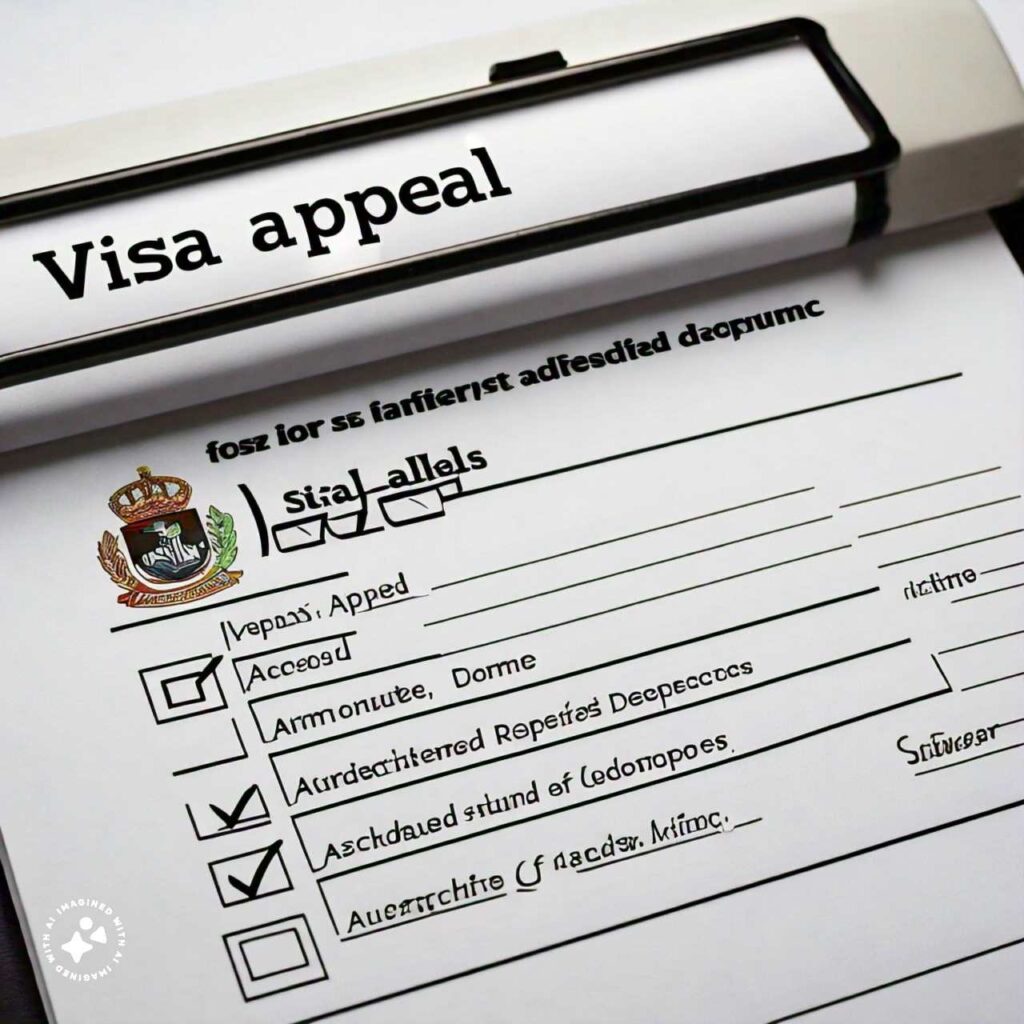This article aims to provide insights into the visa appeal process and address the question, “Can I get a visa after appeal?” When applying for a visa, there is always a possibility of rejection. This can be disappointing and frustrating, especially when you have made plans and preparations for your intended travel. However, in some cases, it is possible to appeal the decision and seek a reconsideration of your visa application.
- How Long to Get a Work Visa in South Africa?
- How Can I Get a Tourist Visa for South Africa
- Requirements for Family Visa in South Africa
Understanding Visa Appeals
A visa appeal is a formal request to review a visa application that has been denied. It allows the applicant to present additional information or address any concerns raised by the immigration authorities. The appeal process provides an opportunity to present a compelling case and seek a reversal of the initial decision.
Reasons for Visa Rejection
Before considering an appeal, it is important to understand the reasons for the visa rejection. Common reasons for visa rejections include:
- Insufficient supporting documents or evidence
- Failure to meet the eligibility criteria
- Incomplete or inaccurate application form
- Lack of financial means to support the visit
- Inadequate travel or medical insurance coverage
- Security or health concerns
- Previous visa violations or immigration issues
The Visa Appeal Process
The visa appeal process varies depending on the country and the specific visa category. It typically involves the following steps:
Obtain information on the appeal process: Research the specific requirements and guidelines for visa appeals provided by the immigration authorities or embassy/consulate of the country you applied to.
Understand the time limitations: Be aware of the timeframes within which you must lodge an appeal. Missing the deadline may result in your appeal not being considered.
Prepare the appeal application: Gather all relevant documents and evidence to support your appeal. This may include additional financial documents, letters of support, or any other information that strengthens your case.
Submit the appeal: Submit the appeal application, along with the required documentation, to the appropriate authority or embassy/consulate. Follow the specified submission procedures and ensure that all documents are properly organised and presented.
Await a decision: Once the appeal is submitted, the immigration authorities will review your case. The processing time for appeals can vary, so it is important to be patient during this stage.
Documentation and Evidence
To increase your chances of a successful appeal, it is crucial to provide compelling documentation and evidence. This may include:
- Updated and comprehensive application form
- Detailed cover letter explaining the grounds for appeal
- Additional supporting documents, such as bank statements, employment letters, or educational records
- Any relevant correspondence or communication related to the visa application
- Affidavits or testimonials from individuals who can vouch for your character or purpose of travel
- Clear and concise explanations addressing any concerns raised in the initial rejection
The Decision on the Appeal
The decision on the appeal is made by the immigration authorities or an appellate body designated by the country’s immigration system. They will carefully review the appeal application, supporting documents, and any additional information provided. The decision can result in the appeal being granted, rejected, or further investigation being required. The time taken to reach a decision can vary, so it is important to be patient during this process.
Reapplying for a Visa
If the appeal is unsuccessful, you may have the option to reapply for the visa. Before reapplying, it is essential to address any deficiencies or concerns that led to the initial rejection. Review the reasons for the rejection and make necessary improvements to your application. Ensure that you provide all the required documents and evidence, and consider seeking professional advice or assistance to enhance your chances of success.
Frequently Asked Questions on Can I Get a Visa After Appeal?
Can I apply for an appeal if my visa application was rejected?
Yes, in many cases, you can appeal a visa rejection and seek a reconsideration of your application.
Is there a specific timeframe to lodge a visa appeal?
Each country has its own timeframe for lodging visa appeals. It is important to adhere to the specified deadlines.
Will appealing the decision guarantee a visa approval?
No, appealing the decision does not guarantee a visa approval. The appeal will be carefully reviewed, and the final decision rests with the immigration authorities.
Can I submit new documents or evidence during the appeal process?
Yes, the appeal process often allows for the submission of additional documents or evidence to strengthen your case.
Should I seek professional assistance for the appeal process?
Seeking professional advice or assistance from an immigration lawyer or consultant can be beneficial, especially if you are unsure about the appeal process or need guidance in presenting a strong case.
In conclusion, while visa rejections can be disheartening, the option to appeal provides hope for those seeking reconsideration. It is important to understand the reasons for the rejection, gather compelling documentation, and follow the appeal process guidelines. However, it is essential to note that the outcome of the appeal is not guaranteed, and in some cases, reapplying for the visa may be necessary. Seek professional advice if needed, and ensure that you address any deficiencies or concerns to enhance your chances of obtaining a visa.
Do you need assistance with a South African visa appeal?
Contact our team of skilled immigration lawyers to discuss your visa and immigration needs.
Call us on +234 812 5505 986 or WhatsApp us at +234 818 1547 085 for immediate assistance with your situation. We are available to assist you in person, over the phone, or online.





